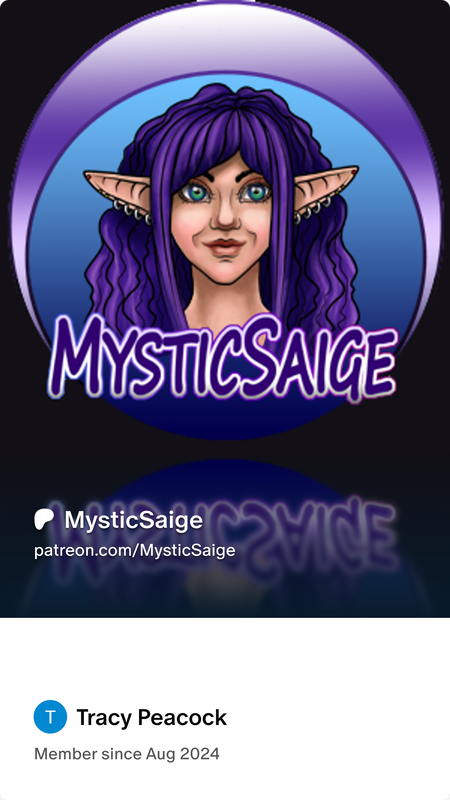|
Ah, tabletop role-playing games (TTRPGs)—they’re a wonderful blend of storytelling, imagination, and dice rolling. Whether you’re a seasoned veteran or a curious newcomer, RPGs offer a plethora of mechanics that not only shape your gameplay experience but can significantly enhance how much fun you have at the table. So grab your favorite set of polyhedral dice, sit back, and let’s dive into the top RPG mechanics you absolutely must try!
Understanding RPG Mechanics What Are RPG Mechanics? Before we go any further, let’s define what we mean by RPG mechanics. At its core, mechanics are the rules and systems that dictate how your game operates. They are what keep the game flowing, guiding everything from character actions and interactions to the overall story. Think of them as the gears that keep the RPG machine running smoothly. Why Are Mechanics Important? The right mechanics can elevate your play experience, drawing players deeper into the story and keeping them engaged. Each mechanic can also reflect the themes of the game you're playing. A game focusing on tension and stress might employ resource management, while a narrative-driven game might give players more leeway to control the story. I remember my very first TTRPG session—it was a classic Dungeons & Dragons game. We were deep in a dungeon, and I had a grand plan to unleash my wizard's spell on a horde of goblins lurking in the shadows. My excitement quickly fizzled when I realized I'd misunderstood the action point system. My grand scheme was thwarted by the mechanics that I hadn’t grasped yet! But, did I learn quickly that understanding mechanics is crucial for success. Top RPG Mechanics to Explore Now that we’ve established what RPG mechanics are, let’s talk about some of the most exciting ones that every player should give a shot. 1. Action Points and Turn-Based Actions What It Is Action points are a mechanic that gives players a set number of actions they can perform in a turn. This can create a strategic element to gameplay, where players must decide how best to use their limited resources each turn. Why Try It Using action points adds layers of strategy to even the most mundane encounters. Should you focus on attacking the big bad wolf, or save some points to defend against the incoming strike? The stakes become higher when every action matters. I played a game of "Shadowrun" where action economy played a vital role. With limited actions per turn, my cyber ninja had to decide whether to engage in combat or secure vital intel for our team. The thrill of narrowing down my choices made the encounter electrifying! 2. Skill Checks and Challenges What It Is Skill checks are the bread and butter of many RPGs. They require players to roll dice to determine whether their character succeeds or fails in a given challenge (think of it like a fancy choose-your-own-adventure book but with dice!). Why Try It Skill checks allow players to mold the game’s outcome based on their characters’ abilities. Whether you’re trying to pick a lock, convince a tavern keeper, or sneak past guards, skill checks add a layer of unpredictability that keeps the game exciting. Games like "Fiasco" use cooperative storytelling, where players can influence mechanics based on skill checks to guide the plot in unexpected directions. 3. Narrative Control What It Is This mechanic gives players the power to influence the story's direction. In some systems, players can spend resources (like Fate Points) to invoke changes in the narrative. Why Try It This mechanic fosters creativity and makes players feel like they have a stake in the story. Instead of merely reacting to the GM’s plot hooks, players can proactively shape the world around them. In my recent “Apocalypse World” campaign, one player used a narrative control mechanic to change the outcome of an impending war. It shifted the storyline dramatically and ignited riveting discussions among all players about unexpected alliances! 4. Character Development and Advancement What It Is Character growth can follow different paths, from traditional level-ups to unique narrative advancements where players gain importance through their actions rather than just experience points. Why Try It Mechanics supporting deeper character development can enrich the narrative and player investment, making them eager to see new dimensions of their character unfold. In "Monster of the Week," my character, a rogue "Chosen," advanced through thematic milestones instead of the usual XP grind. Watching my character's logical growth unfold was a breath of fresh air, encouraging my connection to the storyline and challenges. 5. Resource Management What It Is Resource management focuses on how players handle items such as health, mana points, or even social currency. It can provoke tension as players must make consequential decisions regarding limited resources. Why Try It Resource management introduces strategic gameplay and decision-making. It creates weighty choices that can lead to moments of triumph or disaster. In "Dungeons & Dragons," running out of spells before a final boss encounter can lead to nail-biting tension. 6. Collaborative Storytelling What It Is Collaborative storytelling allows players to contribute to the narrative actively, crafting a shared experience instead of a solo journey directed solely by the GM. Why Try It This mechanic encourages teamwork and creativity, leading to engaging sessions where everyone feels invested in the ongoing story. I’ve participated in games like “Lady Blackbird,” where players had significant input into the story’s direction. The result? A rich, immersive plot that no GM could've foreseen, full of twists and turns! 7. Consequence Systems What It Is This mechanic highlights how player actions can lead to real consequences within the game world, affecting future encounters or storyline arcs. Why Try It Consequence systems elevate gameplay realism and stakes, motivating players to think carefully about their decisions. Games like "Cyberpunk 2020" use consequence systems so effectively that a small choice can lead to unexpected alliances or deadly foes down the line. Choosing the Right Mechanics for Your Group Now that you know some fantastic RPG mechanics, let’s talk about how to pick the right ones for your group. Know Your Players Start by considering the interests and play styles of your players. Do they thrive on tactical gameplay, or do they prefer free-flowing narratives? Observing player preferences can guide your choice of mechanics to enhance enjoyment. Balance Complexity with Accessibility While it can be tempting to dive into complex mechanics, introducing too many can overwhelm new players. Strive for a balance where everyone can enjoy the game without feeling lost. Test Different Mechanics Not every mechanic will resonate with your group. Consider running a one-shot campaign featuring different mechanics. This trial run can help determine what your players enjoy most before committing to a longer campaign. The beauty of RPGs lies in their richness and variability. Each mechanic is like a spice in the kitchen—while you can make a great dish with just salt and pepper, adding a few unique flavors can transform it into an unforgettable meal. Try different mechanics, and don’t hesitate to mix them to create a flavor that suits your group perfectly! You’ll learn that experimenting with mechanics can lead to dynamic play experiences that not only keep everyone engaged but can also make you look like a game master rockstar (even if you, too, occasionally misfire on rules)! So, what are you waiting for? Take the plunge! Try out a new mechanic at your next game night, gather feedback, and most importantly, have fun while you’re at it. Consider sharing your experiences online—whether in forums or social media—because the TTRPG community thrives on collaboration and shared stories. Connect with others, exchange game ideas, and consider ways to bring even more innovative mechanics into your sessions. Remember, the dice might be random, but the fun you create is up to you! In the end, the top RPG mechanics you've explored today—action points, skill checks, narrative control, and more—are just a glimpse into what your TTRPG experience can be! Embrace the adventure, unlock your creativity, and most importantly, enjoy the journey. There’s a whole world of mechanics waiting for you! And who knows? The next time you roll your dice, you might just uncover a new secret that transforms your gameplay forever! Happy gaming! ~~Treshel~~
0 Comments
|
Archives
December 2024
Categories |








 RSS Feed
RSS Feed